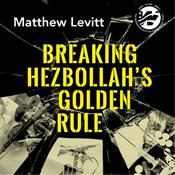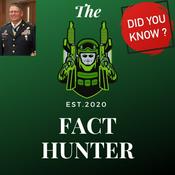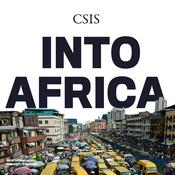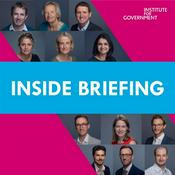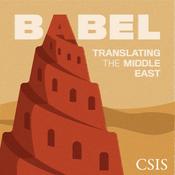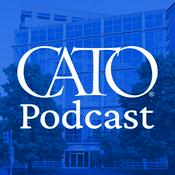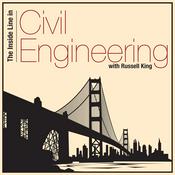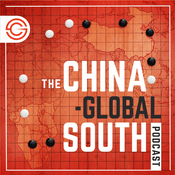341 episodes
- The collapse of the post-war international system now underway will have a disproportionate impact on African countries that rely heavily on multilateral bodies like the UN. Beyond a pull-back of aid and humanitarian assistance, African countries must also contend with an increasingly hostile United States.
Dozens of African countries have been targeted by the Trump administration for visa restrictions, trade sanctions, and regularly denigrated by the president himself. At the same time, U.S. diplomats across the continent were ordered by the State Department in January to remind African governments to express more gratitude to the U.S. for its "generosity."
Judd Devermont, the former top Africa strategist at the White House during the Biden administration and now an operating partner at Kupanda Capital in Washington, joins Eric & Cobus to discuss the future of U.S.-Africa relations and China's expanding presence on the continent.
📌 Topics covered in this episode:
China's sharp drop in Africa lending and what it signals
Why big Chinese infrastructure projects are fading
U.S. Africa relations after USAID and PEPFAR cuts
The leaked State Department email and Africa as a "peripheral" priority
America's collapsing credibility in Africa and beyond
Why China is seen as an opportunity, not an ally
Critical minerals and the limits of extractive diplomacy
What the shifting U.S.-China-Africa balance means next
Show Notes:
Post Strategy: On China by Judd Devermont
The Guardian: Head of US Africa bureau urges staff to highlight US 'generosity' despite aid cuts by Aisha Down
China Power Project: US-China-Africa Relations: A View from Africa by Lina Benabdallah
Join the Discussion:
X: @ChinaGSProject | @eric_olander | @stadenesque
Facebook: www.facebook.com/ChinaAfricaProject
YouTube: www.youtube.com/@ChinaGlobalSouth
Now on Bluesky! Follow CGSP at @chinagsproject.bsky.social
Follow CGSP in French and Spanish:
French: www.projetafriquechine.com | @AfrikChine
Spanish: www.chinalasamericas.com | @ChinaAmericas
Join us on Patreon!
Become a CGSP Patreon member and get all sorts of cool stuff, including our Week in Review report, an invitation to join monthly Zoom calls with Eric & Cobus, and even an awesome new CGSP Podcast mug! www.patreon.com/chinaglobalsouth - Canadian Prime Minister Mark Carney's speech at the World Economic Forum in Davos this week will likely be remembered as one of the most significant orations of the early 21st century. Carney channeled the fear and frustration of many global leaders when he defiantly declared that the U.S.-led international order is over.
The "rupture" that Carney referenced in his address has profound consequences for China as it moves to reshape a part of this new international order to better align with its interests.
Zongyuan Zoe Liu, a senior fellow at the Council on Foreign Relations and a senior research scholar at Columbia University, joins Eric & Cobus to discuss why this is such a pivotal time for China as it moves to become a peer power of the United States, at least economically, without triggering the so-called "Thuycides Trap" that dictates this kind of rivalry often leads to war.
Show Notes:
Foreign Affairs: China's Long Economic War — How Beijing Builds Leverage for Indefinite Competition by Zongyuan Zoe Liu
📌 Topics covered in this episode:
Mark Carney's Davos speech and the declaration of a global rupture
The collapse of the rules-based international order
What a post-American world looks like for middle powers
Economic coercion and the weaponization of supply chains
Where China fits in the new global order
China's long economic war and leverage strategy
The Global South's trust gap with China
Why the debt trap narrative persists despite evidence
China as an opportunity rather than ally in emerging markets
The rapid erosion of U.S. global credibility
Join the Discussion:
X: @ChinaGSProject | @eric_olander | @stadenesque
Facebook: www.facebook.com/ChinaAfricaProject
YouTube: www.youtube.com/@ChinaGlobalSouth
Now on Bluesky! Follow CGSP at @chinagsproject.bsky.social
Follow CGSP in French and Spanish:
French: www.projetafriquechine.com | @AfrikChine
Spanish: www.chinalasamericas.com | @ChinaAmericas
Join us on Patreon!
Become a CGSP Patreon member and get all sorts of cool stuff, including our Week in Review report, an invitation to join monthly Zoom calls with Eric & Cobus, and even an awesome new CGSP Podcast mug! www.patreon.com/chinaglobalsouth - While global attention was fixed on the fallout from U.S. intervention in Venezuela and rising tensions between Washington and Tehran, Chinese Foreign Minister Wang Yi quietly toured three African countries in a notably low-profile visit.
Eric, Cobus, and Géraud unpack why this understated trip mattered despite attracting little media attention, and examine its timing alongside a controversial BRICS naval exercise held off the coast of South Africa.
📌 Topics covered in this episode:
Why Africa remains China's first diplomatic stop of the year
Wang Yi's low-key tour: Ethiopia, Tanzania, and Lesotho
Somalia–Somaliland tensions and China's security calculus
Ethiopia diplomacy, development messaging, and AU signaling
Tanzania's political reassurance and legacy infrastructure ties
Lesotho market access, tariffs, and geopolitical symbolism
BRICS naval drills off South Africa and U.S. backlash (AGOA/G20)
China's zero-tariff push vs. Africa's limited export gains
Bandung 1955: why Asia–Africa solidarity faded, and what could revive it
Indonesia parallels: Chinese-built infrastructure and nickel-sector controversies
Public opinion shifts: pragmatic views on China and declining U.S. appeal
Join the Discussion:
X: @ChinaGSProject | @eric_olander | @stadenesque | @christiangeraud
Facebook: www.facebook.com/ChinaAfricaProject
YouTube: www.youtube.com/@ChinaGlobalSouth
Now on Bluesky! Follow CGSP at @chinagsproject.bsky.social
Follow CGSP in French and Spanish:
French: www.projetafriquechine.com | @AfrikChine
Spanish: www.chinalasamericas.com | @ChinaAmericas
Join us on Patreon!
Become a CGSP Patreon member and get all sorts of cool stuff, including our Week in Review report, an invitation to join monthly Zoom calls with Eric & Cobus, and even an awesome new CGSP Podcast mug! www.patreon.com/chinaglobalsouth Why Wang Yi Chose Somalia, Ethiopia, Tanzania & Lesotho for His 2026 Africa Tour
2026/1/09 | 58 mins.China's Wang Yi kicked off a four-nation, week-long Africa tour this week, marking a signature tradition for Beijing: making the continent the foreign minister's first overseas trip of the new year.
Wang visited Ethiopia and will also travel to Somalia, Tanzania, and Lesotho in southern Africa.
Ovigwe Eguegu, a Nigeria-based policy analyst for Development Reimagined, joins Eric & Cobus to discuss why these four countries made the itinerary, and what Beijing may be signaling geopolitically and economically.
📌 Topics covered include:
Why Africa is China's first diplomatic stop in 2026
Somalia Somaliland and great power competition
Ethiopia debt diplomacy and AU politics
Tanzania ports and the TAZARA railway
Lesotho tariffs AGOA fallout and symbolism
China positioning itself as a multilateral partner in Africa
Join the Discussion:
X: @ChinaGSProject | @eric_olander | @stadenesque | @christiangeraud
Facebook: www.facebook.com/ChinaAfricaProject
YouTube: www.youtube.com/@ChinaGlobalSouth
Now on Bluesky! Follow CGSP at @chinagsproject.bsky.social
Follow CGSP in French and Spanish:
French: www.projetafriquechine.com | @AfrikChine
Spanish: www.chinalasamericas.com | @ChinaAmericas
Join us Patreon!
Become a CGSP Patreon member and get all sorts of cool stuff, including our Week in Review report, an invitation to join monthly Zoom calls with Eric & Cobus, and even an awesome new CGSP Podcast mug! www.patreon.com/chinaglobalsouth- In this special year-end edition of The China in Africa Podcast, Eric, Cobus, and Géraud look back on the top stories of 2025 and look ahead to the key trend to watch in 2026.
📌 Topics covered include:
Simandou goes online (Guinea) and the iron ore geopolitics shift
Zambia's Kafue River spill and the China narrative battle
China's manufacturing push, overcapacity, and export pressures
Soybeans and South America's growing leverage in U.S.–China trade
China–India détente and what it changes (and doesn't)
G20 turbulence around South Africa and global governance fractures
2026 outlook: Southeast Asia rivalry, Zimbabwe lithium value-add, Senegal hidden debt
Join the Discussion:
X: @ChinaGSProject | @eric_olander | @stadenesque | @christiangeraud
Facebook: www.facebook.com/ChinaAfricaProject
YouTube: www.youtube.com/@ChinaGlobalSouth
Now on Bluesky! Follow CGSP at @chinagsproject.bsky.social
Follow CGSP in French and Spanish:
French: www.projetafriquechine.com | @AfrikChine
Spanish: www.chinalasamericas.com | @ChinaAmericas
Join us Patreon!
Become a CGSP Patreon member and get all sorts of cool stuff, including our Week in Review report, an invitation to join monthly Zoom calls with Eric & Cobus, and even an awesome new CGSP Podcast mug! www.patreon.com/chinaglobalsouth
More Government podcasts
Trending Government podcasts
About The China in Africa Podcast
Twice-weekly discussion about China's engagement across Africa and the Global South hosted by journalist Eric Olander and Asia-Africa scholar Cobus van Staden in Johannesburg.
Podcast websiteListen to The China in Africa Podcast, The PYD Lab and many other podcasts from around the world with the radio.net app
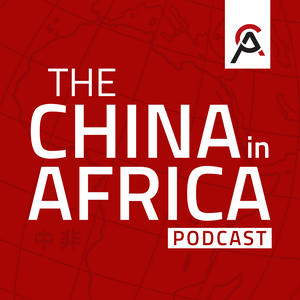
Get the free radio.net app
- Stations and podcasts to bookmark
- Stream via Wi-Fi or Bluetooth
- Supports Carplay & Android Auto
- Many other app features
Get the free radio.net app
- Stations and podcasts to bookmark
- Stream via Wi-Fi or Bluetooth
- Supports Carplay & Android Auto
- Many other app features


The China in Africa Podcast
Scan code,
download the app,
start listening.
download the app,
start listening.

